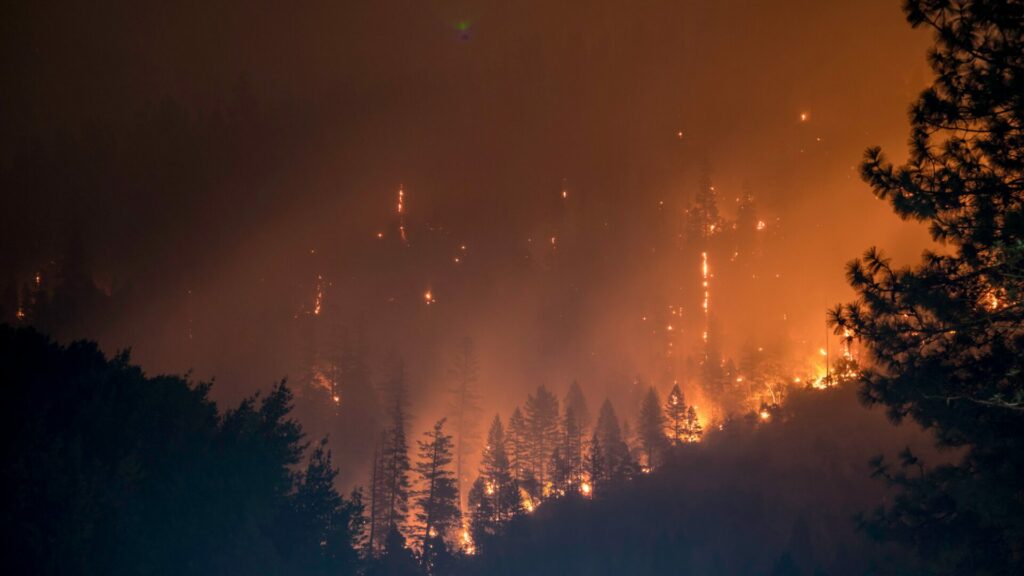Belgium is gearing up for another week of hot weather, with temperatures again expected to surpass 30°. Emergency services are preparing for a new wave of forest fires and local authorities have begun to implement strict preventive measures, banning fires and smoking in forest areas to prevent the spread of seasonal fires.
Forest fires are nothing new in Belgium, but there are early signs that they are increasing in frequency. Rather than a natural phenomenon, it is believed that most fires are caused unintentionally by Belgians, and in some cases, are related to deliberate arson.
Wildfires have ravaged much of Europe this summer. During the last heat wave, major fires affected France, Germany, Czechia, Switzerland, and Belgium. The scale of fires in Belgium is usually not comparable to those in Mediterranean regions, due to the milder climate in Belgium, but fires remain frequent and require a coordinated response.
Belgian forest fire management revolves less around extinguishing fires, instead relying on isolating fires and channelling them in favourable directions. When extinguishing fires, the Belgian fire service must account for the type of vegetation and in which direction the wind is blowing.
Intentionally or not, most forest fires are caused by humans, and this also applies to Belgium. Common sources of forest fires include ashes from barbecues, badly extinguished cigarette butts on dry grass, broken bottles or glass left under the sun, or even heat from vehicles.
“Vehicles such as combine harvesters or tractors, whose engines are still hot, can catch fire and spread fire,” Marc Gilbert, colonel of the Val de Sambre firefighter zone, told Belgian broadcaster RTBF.
In some rarer cases, fires are deliberately lit. In France, a man was arrested under suspicion of deliberately causing a wildfire that destroyed some 13,000 hectares of forest in Gironde near Bordeaux.
An exceptional year
The frequency of forest fires is significantly increased during periods of high drought. Belgium has been suffering with extreme drought throughout the year, placing great strains on agriculture and water availability. In dry fields, just one spark can ignite a fire. When the conditions are right, this can quickly spread and destroy a large area of fields or forest.
According to RTBF, Belgian firefighters have reported that the number of fires that they have been tackling across the country this summer is rising.
According to estimates from the European Union's Earth Observation Programme Copernicus, some 382 hectares of land has been ravaged by fire in Belgium already this year, surpassing the total for the whole of 2019. In 2011, extreme drought led to forest fires that destroyed 2,180 hectares of land.
The link between human activity and forest fires is also clear to see. In terms of average number of fires, there were none recorded in 2020, when Covid lockdowns kept most Belgians indoors. Last year, the number of fires rebounded to an average of two. This year is already exceptional, with an average of four major forest fire incidents.
Neighbouring France has recorded record losses from forest fires in 2022. 47,000 hectares of land has been destroyed by fire since the start of the year, far higher than in previous years.
“The period conducive to forest fires generally extends from June to August, but I am convinced that it will lengthen in the future. And this is precisely the difficulty that we, as relief zones, have with the increasingly frequent periods of drought, which increase the risk of fires, floods that we have experienced, and other call outs. Our missions are much more substantial than before,” Gilbert said.
Related News
- Belgium starts hottest week of 2022, first real heatwave expected
- Forest fires spread into eastern Germany
Generally speaking, increased levels of forest fires are bad for the environment, as burning wood releases large amounts of trapped CO2, which worsens global warming and helps to further fuel fires.
In order to prevent the number of forest fires, forestry professionals are opting to diversify their lands, planting a variety of tree species and ages. They also dig small trenches to prevent fire spreading and organise forest land into smaller plots.
According to the firefighter, greater numbers of emergency personnel will be needed to tackle increasingly frequent forest fires.
“The more firefighters there are, the more the possibility of limiting fires, or even avoiding increases. But for that, higher education must be put in place in Belgium,” Gilbert concluded.

